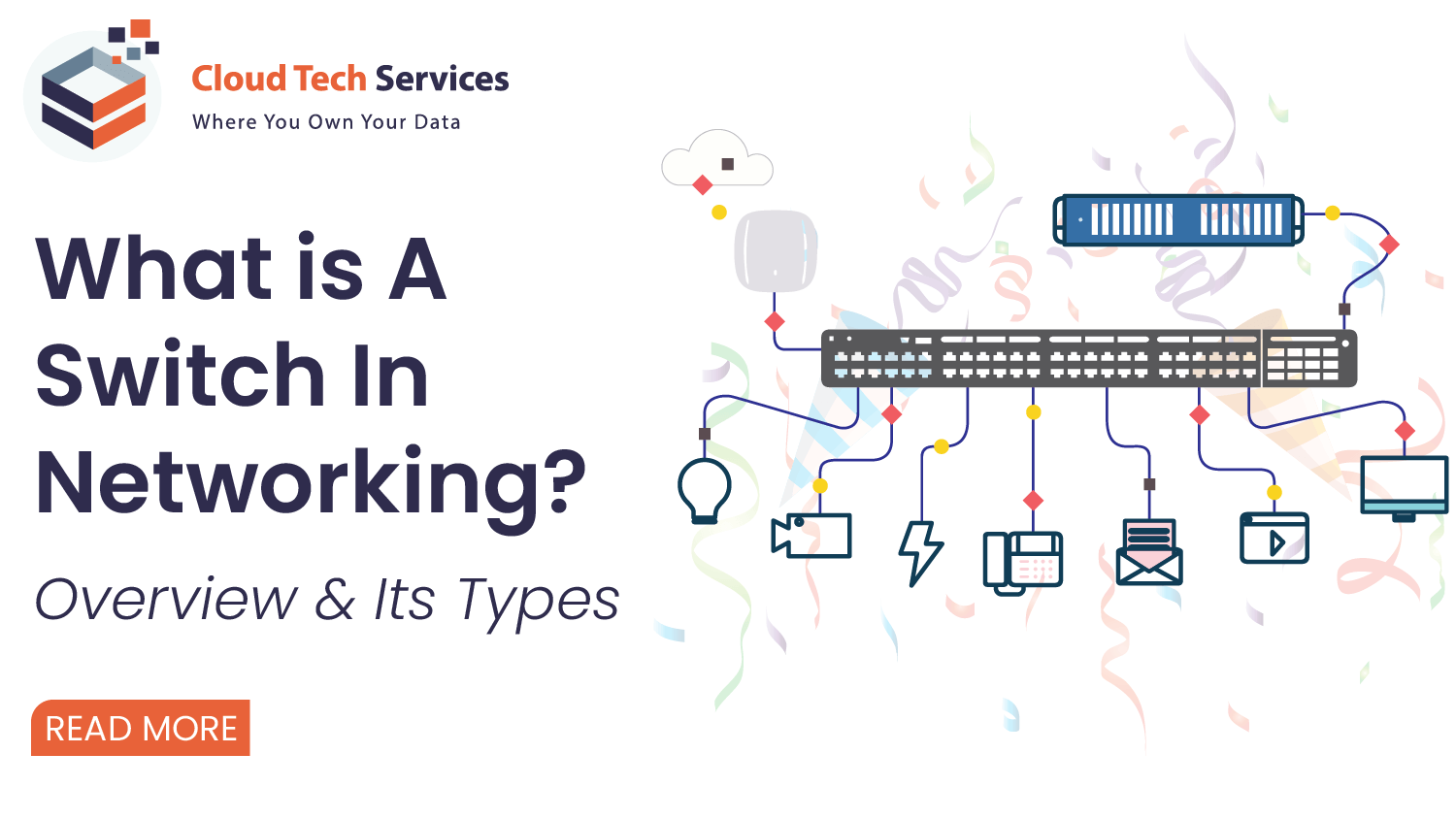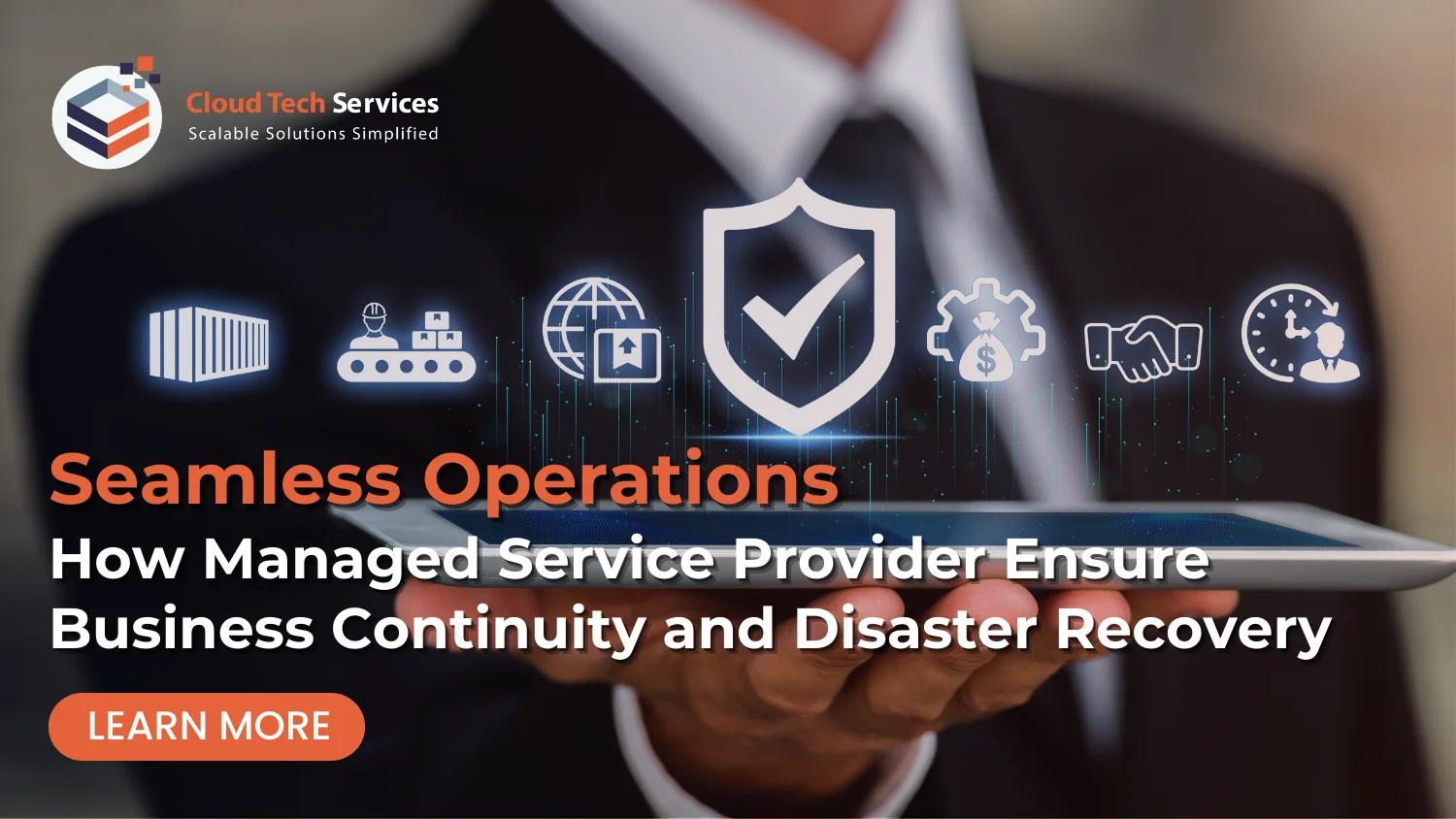Seamless Operations: How MSPs Ensure Business Continuity & Disaster Recovery
Running a small business is hectic. You juggle tasks, keep customers/clients happy, and ensure smooth operations. But what if there is a disaster? Power outages, cyber-attacks, or hardware failures can stop you in your tracks, costing you time and money.
That’s where Business Continuity Disaster Recovery (BCDR) comes into play. It’s your safety net, helping you bounce back from unexpected problems. BCDR gives you tools and programs to get back on track fast.
Business continuity (BC) is about keeping critical activities going, even during challenges. That means having policies, procedures and systems in place to ensure smooth communication, sales and customer service no matter what.
Disaster recovery (DR) is all about recovering your IT infrastructure and data after a disaster. It includes backups, redundant systems, and recovery processes to bring your systems online quickly.
BCDR is your lifeline in the chaos of running a business, ensuring you can weather any storm and keep your business rolling smoothly.
What is Downtime?
The culprit driving negative outcomes, especially for small and medium-sized businesses, is downtime. Unlike large enterprises with robust IT infrastructure and large support teams, SMB enterprises use limited resources and bandwidth to effectively manage a sudden outage.
Downtime refers to periods when critical IT systems, services, and resources, such as websites, databases, or communication systems, are unavailable due to technical issues, cyber-attacks, maintenance, natural disasters, or human error. Downtime can hinder different aspects of business operations, including servers, software applications, communication systems and more.
Over the long term, cyber-attacks occur during periods of downtime leading to data breaches and system outages as enterprises struggle to secure and protect their IT assets. The statistics are alarming – nearly 43% of cyberattacks target small businesses. Power outages can slow down businesses, affecting business operations, communication channels and networks.
Server crashes and hardware failures further increase the risk of small businesses going out of business. These problems result in high costs and damage to the business reputation, leading to costly repairs and replacements.
Downtime in a small business is like a chain reaction of falling dominoes. One disruption leads to another until everything crashes down:
- Operations stop, causing production or service delays.
- Delays affect customer orders, leading to missed deadlines.
- Customers get frustrated and may look for alternatives, causing revenue losses and harming loyalty.
- Bad experiences during downtime can damage a business’s reputation, as dissatisfied customers share their complaints.
The financial impact is severe. According to a survey conducted by the Uptime institute, on average, data center downtime costs about $9,000 per minute across industries, hitting revenue, productivity, and recovery costs hard.
Reducing the risk of downtime with an MSP partner
This is where Managed Service Providers (MSPs) come in. They are your trusted partners in managing IT challenges for your small business. MSPs are IT specialists who bring a wealth of knowledge to the table, providing a wide range of services beyond basic IT support.
The power of an MSP partner
A strong MSP goes beyond technology; They will be trusted advisors for your business.
Here’s how an MSP fosters a sense of security in your BCDR strategy:
- Remote control and analytics: Using multiple integrated monitoring tools can be a nightmare for IT teams. MSP provides a single mirror view, accessible anywhere, anytime. This real-time data flow allows potential events to be identified before they snowball into major depressions.
- Scalability for growth: As your business expands, your IT needs change. MSP solutions are designed to connect with you, ensuring you only pay for the services you need. This eliminates the burden of hiring and maintaining dedicated IT professionals solely for restoration.
- Shouldering the Burden: Managing complex BCDR plans in-house requires constant vigilance and specialized skills. An MSP takes on this responsibility, freeing you to focus on running your business. They become your BCDR experts, continuously monitoring, updating, and testing your plan to ensure its effectiveness.
- Disaster Recovery Skills: Disaster recovery situations are inherently stressful. MSP’s experience proves invaluable in these situations. You can create a customized BCDR plan tailored to your specific needs, setting clear recovery point objectives (RPOs) and recovery time objectives (RTOs). These metrics define data loss and acceptable resiliency time for your business, ensuring fast and effective recovery.
- Proven solutions and ongoing networking: MSPs have a proven track record of successfully supporting businesses from disasters. Their experience translates into reliable solutions and clear communication channels in times of crisis. You will know what to expect and what steps are being taken to get your business back on track.
Imagine a power outage plunging your office into darkness. With an MSP by your side, you can meet this challenge with confidence. With an MSP by your side, you can meet this challenge with confidence. A clear communication plan has already been established, a data recovery plan will be initiated, and they will work diligently to restore your systems. This allows you to focus on reassuring your employees and reducing customer friction.
Conclusion:
By implementing a robust BCDR system and partnering with an MSP like Cloud Tech Services, you can significantly reduce the risk of downtime and its domino effect on your business. We at Cloud Tech Services provide you with the expertise, resources and peace of mind you need to weather any storm and keep your business running smoothly. Cloud Tech Services goes beyond simply installing in your existing infrastructure. We bring a wealth of experience to the table and deliver powerful and effective service.











